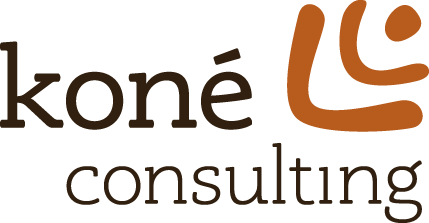Our View This Week: Servant Leadership
I am passionate about good leadership and management, especially in government. My master’s is in public administration, after all (shout out to Evans School alums!). So, I feel really blessed to have spent the past two weeks with health and human services state, county, and non-profit managers in Colorado talking about continuous improvement. The project is sponsored by the Healthcare Policy and Finance Administration (HCPF), and we’re teaming with Public Consulting Group (PCG) to deliver the services.
It’s one of my favorite types of engagements. The design, conceived by Juanita Johnson, a visionary manager in HCPF, ensures sustainability because we are mentoring a team of continuous improvement internal consultants at HCPF who will continue the work with counties and Medical Assistance (MA) sites after our contract ends next summer. At Koné Consulting our purpose is to inspire change and create lasting improvements for our clients in the government and non-profit sectors, and we do that mostly by supporting and helping to develop people who are managing people or processes - or both - so we are grateful to be able to achieve that purpose through this project.
I’m especially blessed because the participants I’ve spent time with in workshop conference rooms lately are inspiring and dedicated leaders who have been called to serve disadvantaged people in their communities. We spent the first day talking about servant leadership and the role of leaders in continuous improvement. How cool is that?
What’s servant leadership and what does it have to do with continuous improvement? Robert Greenleaf, a long-time internal consultant at AT&T, published an essay in 1970 entitled “The Servant as Leader” which eventually led to publication of his book, “Servant Leadership” in 1976. Thus, servant leadership is not a new idea - I learned about it in grad school in 1996 from a Nordstrom executive who presented in a class I was taking on management. Containing timeless principles, servant leadership compliments lean continuous improvement, especially, because both share the principles of “respect for people” and focusing on what the “customer” or “follower” wants and needs.
In 1969 Greenleaf wrote, “…I concluded that we in this country were in a leadership crisis and that I should do what I could about it.” Fifty years later, we are experiencing a similar crisis in this country. Greenleaf went on to say, “A new moral principle is emerging, which holds that the only authority deserving one’s allegiance is that which is freely and knowingly granted by the led to the leader in response to, and in proportion to, the clearly evident servant stature of the leader.”
I will be thinking about Greenleaf when I open up my ballot later this month and exercise my right to vote for the candidates I think are best suited to lead me; which leaders and candidates have a servant leadership stature, and which of them has been called to serve a greater good first, rather than being a leader who is driven first by a desire for power or material wealth.
What’s your view this week?
Alicia Koné



